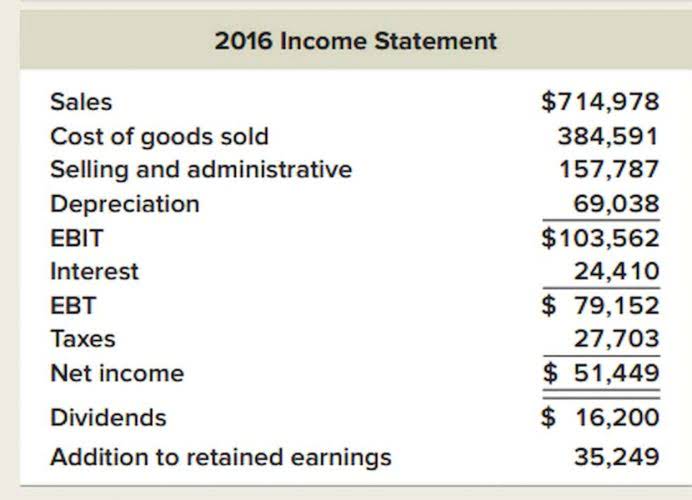
When the check reaches this expiration date, it is no longer valid, and the bank the check was written from may not honor the payment. Even if this policy isn’t written on the check, most banks have policies around check expiration. Ask the check’s originating bank if you’re unsure of how long you have to cash or deposit a check. On 28 January 2019, the balance as per the cash book and bank statement amounts to $10,000. On the same day, a check of $7,000 is issued to a creditor, Mr. John, who presents the check to his bank on 2 February 2019. Outstanding checks are deposited into a bank account once they are deposited by the recipient and processed by the receiving bank.
- You may have had even cash in the account when you wrote the check, but a month later your account might be lower.
- ◦ Once voided, be sure to mark the old check as voided in your checkbook.
- Your first step should be to use an accounting system that deducts any uncashed checks from your available funds.
- Keeping track of multiple uncashed checks over a long period of time makes it easier to accidentally spend the money that was set aside for a check and incur overdraft fees.
- As mentioned above, you may need to return the original check or sign documents confirming the check is lost or destroyed.
- Our work has been directly cited by organizations including Entrepreneur, Business Insider, Investopedia, Forbes, CNBC, and many others.
When Outstanding Check Turns Void

This can be a challenge for both https://www.bookstime.com/ consumers and small business owners, because enough cash must be kept in the account drawn upon to cover outstanding checks until they are cashed. Outstanding checks can complicate accounting because the assumption is that a check gets issued, deposited, and paid. The payor must be sure to keep enough money in the account to cover the amount of the outstanding check until it is cashed, which could take weeks or sometimes even months. Learn about outstanding checks in accounting and how they impact your finances.
Tracking and Follow-Up

This involves comparing the bank statement with the individual’s own records and identifying any discrepancies. In summary, the reasons for outstanding checks can vary, but they all share the common theme of causing inconvenience and frustration. Whether it is due to insufficient funds, bank errors, or timing issues, it is crucial to address these concerns promptly to avoid any potential consequences. By understanding the underlying causes bookkeeping of outstanding checks, you can take proactive steps to prevent them in the future.
What to Do About Outstanding Checks

They are not tax efficient and an investor should consult with his/her tax advisor prior to investing. The value of the investment may fall as well as rise and investors may get back less than they invested. + Plus, detailed guides to maximizing the value you get from your new US bank account.
Risks of Outstanding Checks
- They can be a result of timing differences between when a check is issued and when it is presented for payment.
- If an outstanding check is cashed after you asked a bank to stop the payment, you will be responsible for proving that you took the necessary steps to complete the payment.
- One way to carry out this reconciliation process is by using a bank reconciliation statement.
- Managing outstanding checks is a critical aspect of effective cash management and maintaining accurate financial records.
- This can involve filing a lawsuit and seeking a judgment against the account holder.
- This delay can cause the check to appear as outstanding, even though the necessary funds are available.
- However, this doesn’t always solve the problem, as it costs a fee to the payor and is only valid for a limited time.
When a outstanding check definition business writes a check, it deducts the amount from the appropriate general ledger cash account. If the funds have not been withdrawn or cashed by the payee, the company’s bank account will be overstated and have a larger balance than the general ledger entry. Last, outstanding checks might have an impact on management of the cash flow. If a corporation has a substantial number of checks that have not yet been cashed, it may create ambiguity over the amount of cash that is available, making it difficult to efficiently plan for and manage expenses. It is worth noting that outstanding checks are different from voided checks. Voided checks are checks that have been rendered invalid and are no longer considered part of the company’s outstanding obligations.
Ask Any Financial Question
An outstanding check refers to a check that has not yet been deposited or cashed by the recipient. In other words, it has already been written and delivered to the recipient, but the recipient (or the recipient’s bank) has not yet processed the check, which would result in a draw on the issuing account. Checks which have been written, but have not yet cleared the bank on which they were drawn. In the bank reconciliation, outstanding checks are deducted from the balance per bank.
If an outstanding check is cashed after you asked a bank to stop the payment, you will be responsible for proving that you took the necessary steps to complete the payment. When you pay someone by check, your payee must deposit or cash the check to collect the payment. The payee’s bank will request money from your bank, and the transaction concludes when your bank sends funds to the payee’s bank. Alternatively, if you both use the same bank or credit union, the transaction will conclude when the money is transferred from your account into the payee’s account. As businesses have to abide by the unclaimed property laws, any checks that have been outstanding for a long time must be remitted to the state as unclaimed property. As such, there is no incentive to wish for an outstanding check to permanently never be cashed as the payment is subsequently owed to the government for holding.
• Reach out to the payee and ask what happened to the outstanding check. Make sure that payees have access to the right contact information so that they can get in touch with you or your designated representative regarding any questions, issues, or changes relating to the overdue check. Check to see that the contact information is correct, as checks may go missing simply because of an incorrect mailing address. The bank will only debit the depositor’s account when the check is presented to it, and this will be paid by the bank. Investing in alternative assets involves higher risks than traditional investments and is suitable only for sophisticated investors. Alternative investments are often sold by prospectus that discloses all risks, fees, and expenses.

Guide to Outstanding Checks
Voiding a check usually occurs when there is an error or when a check needs to be cancelled for any reason, such as a payment dispute or a duplicate payment. Outstanding deposits refer to a deposit that has been made but has yet to clear in the recipient’s account. Unlike a check, deposits have already been received by the bank and are being processed. Different banks have different processing times, but most outstanding deposits typically clear within three business days. Learn about outstanding checks in finance, including the definition, risks involved, and effective ways to avoid them. When you write a check to vendor, the bank has no idea the check has been written.
